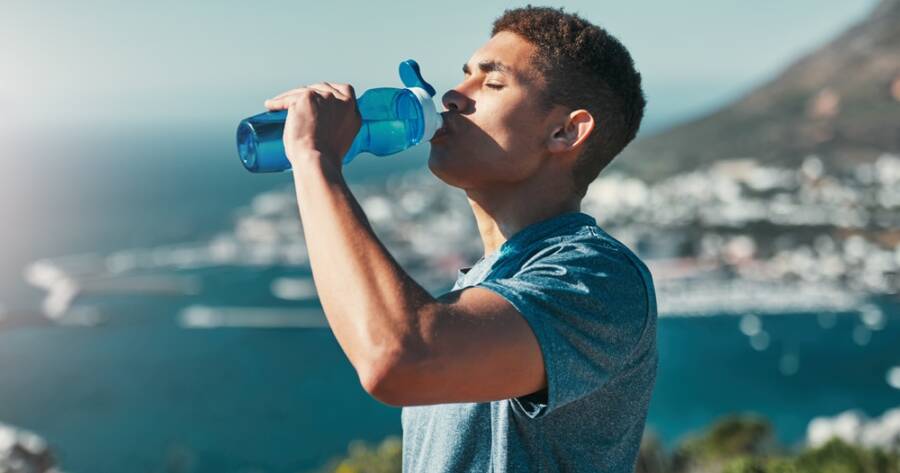As temperatures climb, so does the risk of dehydration. Whether you’re spending time outdoors, exercising, or simply enduring a heatwave, staying hydrated during hot weather is essential for maintaining energy, preventing heat-related illnesses, and supporting your overall well-being. Dehydration can creep up quickly in the heat, leading to fatigue, dizziness, headaches, and even more serious conditions like heat exhaustion or heat stroke. Fortunately, staying hydrated is simple once you build the right habits. Explore some effective tips to help you beat the heat and keep your body well-hydrated all summer long.
1. Drink Water Regularly, Not Just When You’re Thirsty
Thirst is a late indicator of dehydration. During hot weather, it’s important to drink water consistently throughout the day, even if you don’t feel particularly thirsty. Aim for at least 8–10 glasses (2–2.5 liters) of water daily, and increase that amount if you’re sweating, exercising, or spending time in the sun.
Pro tip: Carry a reusable water bottle with you at all times to make sipping easy and accessible.
2. Start Your Day with a Glass of Water
After a night of sleep, your body is naturally dehydrated. Start each morning with a full glass of water to kickstart your hydration for the day ahead. It’s a simple routine that can make a big difference in how you feel, especially during the summer months.
3. Infuse Your Water for Flavor and Fun
If plain water feels boring, add natural flavors to make it more enjoyable. Try infusing your water with:
- Cucumber and mint
- Lemon or lime slices
- Berries and basil
- Orange and ginger
Not only does this make water more refreshing, but it can also encourage you to drink more throughout the day.
4. Eat Hydrating Foods
Hydration doesn’t just come from beverages, many fruits and vegetables are high in water content and can help keep you hydrated. Great options include:
- Watermelon
- Cucumbers
- Strawberries
- Oranges
- Lettuce
- Celery
- Zucchini
Include these foods in your meals and snacks to support fluid intake naturally.
5. Limit Dehydrating Drinks
While coffee and tea in moderation are okay, alcohol and sugary sodas can increase fluid loss and contribute to dehydration. If you do consume these, balance them with extra water to offset their diuretic effects.
Tip: For every alcoholic beverage, drink a glass of water between servings to stay on track.
6. Hydrate Before, During, and After Exercise
When you exercise in the heat, your body loses more water through sweat. To prevent dehydration:
- Drink 1–2 glasses of water before you work out
- Sip water every 15–20 minutes during activity
- Rehydrate after with water or a low-sugar electrolyte drink
Listen to your body, and don’t wait until you’re parched to replenish fluids.
7. Watch for Signs of Dehydration
Being aware of early dehydration symptoms can help you act fast. Look out for:
- Dry mouth or sticky saliva
- Dark yellow urine or decreased urination
- Fatigue or dizziness
- Headache
- Muscle cramps
If these symptoms appear, stop what you’re doing, get into the shade or indoors, and drink water immediately.
8. Stay Cool to Reduce Fluid Loss
The hotter you are, the more you sweat and the more fluids you lose. To conserve hydration:
- Wear light, breathable clothing
- Use fans or air conditioning indoors
- Stay in shaded areas when outside
Avoid intense activity during the hottest part of the day (usually between 11 AM and 4 PM)
Keep Hydration Simple and Consistent
Staying hydrated in hot weather isn’t just about chugging water when you’re thirsty, it’s about building habits that keep your body nourished, energized, and cool throughout the day. By drinking regularly, eating hydrating foods, and being mindful of your environment, you can avoid dehydration and enjoy summer safely and comfortably.
So grab your water bottle, load up on fresh fruits, and make hydration a daily priority, your body will thank you.
